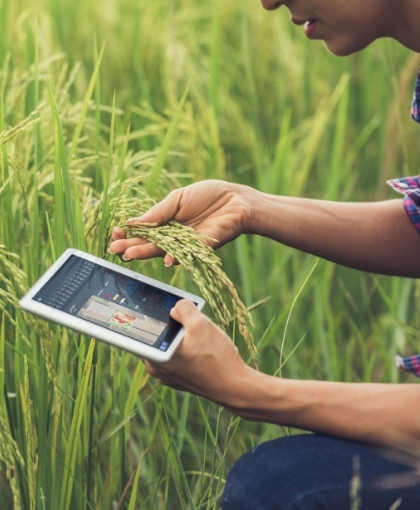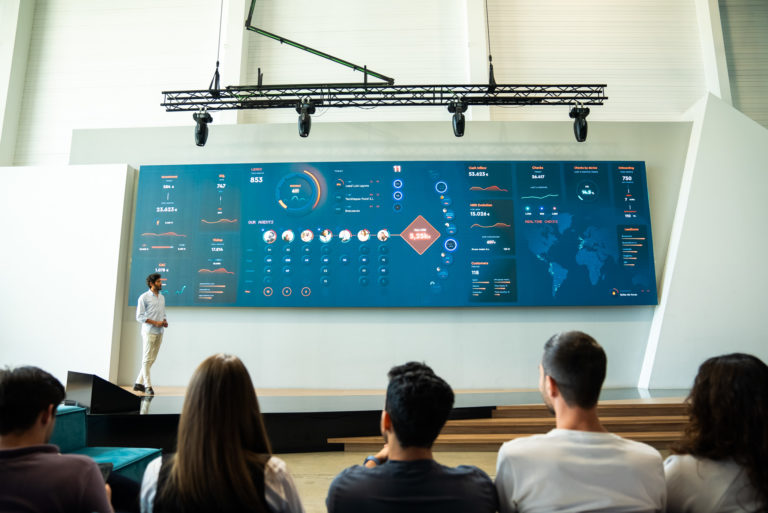Sow data, harvest decisions

Data is the mainstay for any company and is the key to better decision making and greater efficiency. And, how could it be otherwise, it also happens in the agricultural sector. Far from what many may think (that in the field we depend too much on external factors that we cannot control, that we cannot avoid a long period of drought or floods, etc.), the good use of information is key to maximizing harvests and, therefore, profits.
Today we will talk about a client that needed to unify the information it received from more than 20 different data sources (can you imagine controlling all this information manually and with a global vision?) From a dashboard with real-time information, FRUIT has the ability to consume accurate and objective data for each country in terms of production, consumption, foreign trade, prices and stock, among others.
Choice of KPIs in the agribusiness industry
The first step in defining the FRUIT S.L. project was to define the key indicators that needed to be displayed on the dashboard to improve decision making. Let’s look at some of them:
- Meteorology. As we mentioned before, climatology plays a key role in crops. Having a global visual of the weather right now, as well as having a forecast for the next hours or days helps us a lot to avoid any surprises. We have a visual of the weather in the different cities of Europe, as well as a system of future alerts about possible storms.
- Fruit production. On a map, at a glance, we have the ability to know how many tons of fruit are produced in each city in Europe, as well as the hectares dedicated to cultivation and the types of fruit produced in each country.
- Ranking by country. For FRUIT SL it was important to have a ranking of countries according to the fruit produced and the cultivated area.
- Export/Import: How many tons of fruit have we exported/imported to date? How are we doing compared to last year? At what price? Which countries consume the most fruit and what type of fruit?
Big Data in the agro sector
The intelligent consumption of information leads companies like FRUIT SL to make correct, efficient and agile decisions. If anything, data analysis brings with it the ability to give real value to the information and to be able to make predictions, avoiding greater evils in the future.
- Fast experimentation. To be a good fruit grower you must always keep in mind factors such as climate and be able to use the best consumption techniques. The data allows us to be able to draw statistics and draw conclusions about many other farms. Not only do we save time and money, but the risk factor is reduced considerably.
- Agricultural algorithms. In agriculture, there are many predictive models in satellite images, soil analysis or climatology, which help producers to systematize tasks. This is a way of making much more realistic and accurate estimates of crop yields.
In short, data analysis brings with it a clear optimization of decisions on planting, crops, harvests, irrigation systems or fertilization, among others. With these dashboards, FRUIT SL has not only reduced its risk and loss margin, but also the uncertainty factor (mainly due to inclement weather), has been reduced by a considerable percentage.
Agility, optimization of resources, time and, above all, improvement in product quality and delivery of goods to the end customer are just some of the advantages of including the culture of data and information consumption in the company.



